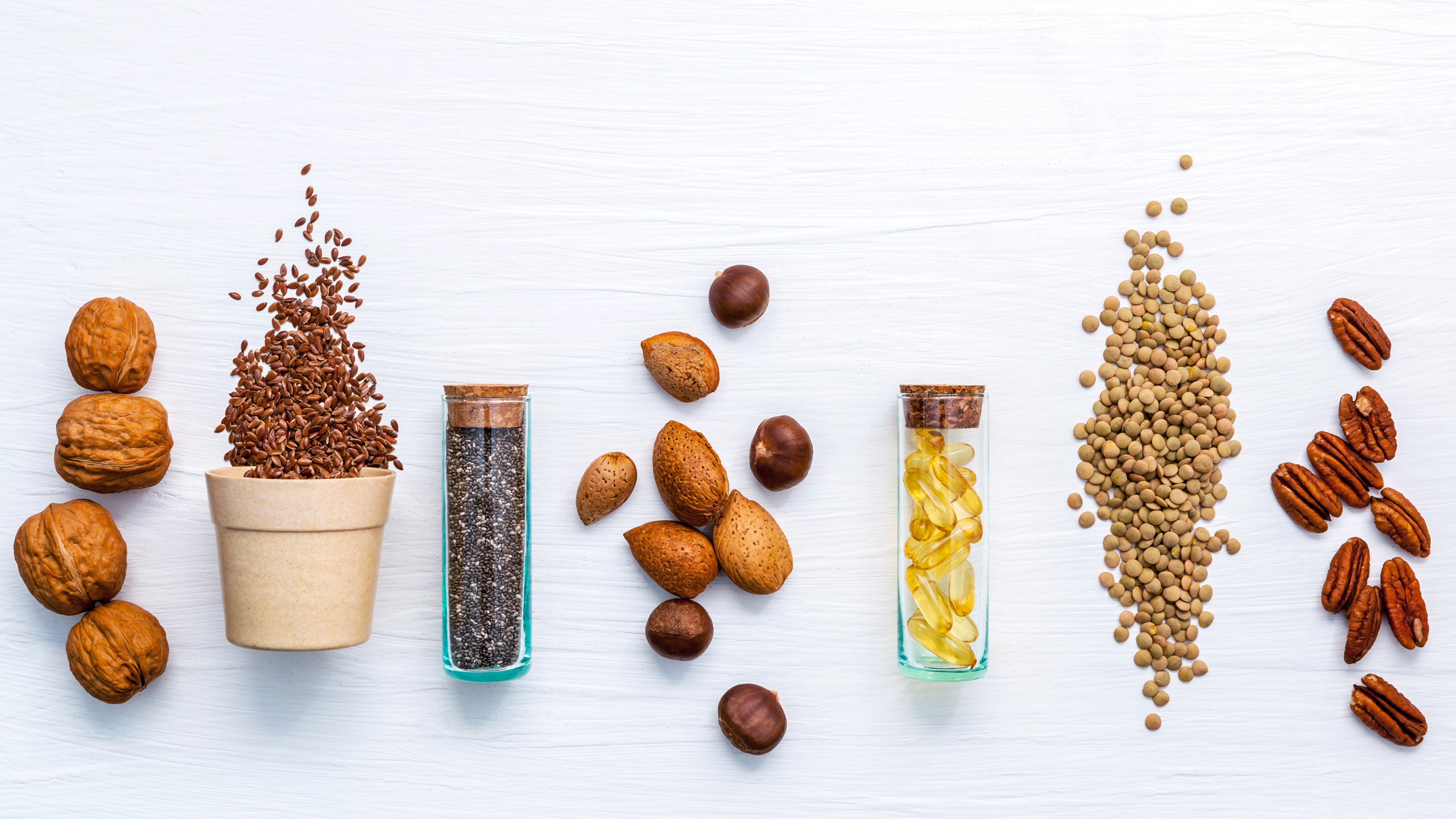Get your kleenex ready! Germs seem to be around every corner at this time of the year. Fortunately, modern medicine is here to help. But other than turning to OTC medicine, what else can you do to reduce symptoms and even enhance immunity?
To help clear the air, we asked some Registered Dietitians to weigh in on their top supplement suggestions for immunity. From zinc to echinacea, here are the best immunity vitamins and supplements they recommend trying this season.
Vitamin C
Often thought as the “go to” nutrient for sickness, vitamin C has become the designated poster child for immunity. And for good reason! This nutrient is crucial to keep your immune defenses up and running, as it helps stimulate the production of white blood cells (also known as leukocytes) to help ward off viruses and bacteria [1]. While studies have found that taking vitamin C can reduce the common cold by 8% for and 13.5% for children, taking high doses of vitamin C has not been proven to fully prevent sickness [2].
Dosing recommendations
The recommended daily amount (RDA) for adults is as follows [3]:
Children 1-3 years old: 15 mg
Children 4-8 years old: 25 mg
Children 9-13 years old: 45 mg
Males 14-18 years old: 75 mg
Females 14-18 years old: 65 mg
Males 19 and older: 90 mg
Females 19 and older: 75 mg
Smokers: 35 mg/day more vitamin C than nonsmokers
It’s also been found that doses of 200 mg/day or more may reduce the duration of cold symptoms [4]. Moreover, research has found that marathon runners who took daily supplements of vitamin C had a 50% reduced chance of developing a common cold [5].

Sources
You can get vitamin C with high dose supplements, and/or include it in your diet by eating citrus fruits, bell peppers, broccoli, and strawberries. Registered dietitian Alayna Hutchinson recommends knocking back a nutrient-rich cocktail (a combination of potassium, sodium, and vitamin C) like orange juice, coconut water, celtic sea salt, and collagen to support your immune system.
Get vitamin C in your Elo Smart Gummies.

Zinc
Zinc is an essential trace nutrient in humans that plays an important role in immune health, as it helps your body develop and activate T-lymphocytes (subtypes of white blood cells). According to studies, zinc supplements might prevent and decrease the duration of respiratory tract infections by 33% if taken within 24 hours after symptoms begin [6].
Dosing recommendations
The RDA for zinc is ~9 mg for women and 11 mg for adult men [7]. However, Registered Dietitian Janet Coleman recommends taking between 15 and 40 mg/day to reap optimal benefits.
Zinc toxicity may be possible (and can lead to a copper deficiency), so it’s advised to consult your healthcare provider before embarking on a high dose of zinc.
Sources
To reach your daily recommended levels, try adding zinc-rich foods, like red meat, shellfish, dairy, and cashews to your diet. If you follow a vegetarian or vegan diet, supplementation may be necessary to obtain the recommended amount of zinc.
Get zinc in your Elo Smart Gummies.

Vitamin D
Vitamin D is a fat-soluble vitamin involved in many important functions, including immune health. Since it can only be obtained through sun exposure and a few foods, many Americans are deficient in this vitamin. As such, a deficiency can wreak havoc on your health, as symptoms include risk of osteoporosis, elevated HbA1C levels, and a weakened immune system [8].
Studies have shown a link between vitamin D deficiency and increased risk of infections and higher rates of autoimmune disease [9]. This is likely due to the important role vitamin D plays in improving immune function, reducing inflammation, and modulating growth and development. Though more evidence is needed, observational studies have also found a link between vitamin D deficiency and increased COVID-19 severity and mortality [10].
Dosing recommendations
The RDA for people between the ages of 1 and 70 is 600 IU/day, and for adults over 70 the RDA is 800 IU/day [11]. However, recent research shows that vitamin D supplementation can be used at 5,000 IU/day (and up to 10,000 IU/day) without any adverse effects [12]. Some studies also suggest that consuming adequate amounts of magnesium is essential for activating vitamin D, so supplementing with magnesium may be helpful if your levels are low [13].
Learn more about how you can optimize vitamin D levels with your diet.
Sources
You can get vitamin D from animal sources (like salmon, cod liver oil, sardines, and dairy products), fortified foods (such as orange juice and plant milks), and supplements.
Get vitamin D in your Elo Smart Gummies.
Probiotics
70% of the immune system is located in the gut, so it’s no wonder that probiotics are beneficial for immune support [14]. According to Registered Dietitian Alicia Galvin, improving your gut should be a top priority when trying to strengthen your immune system during flu season.
Research also supports this, as it’s been shown that probiotics contain several compounds which may promote immune function, modulate inflammatory responses, play a therapeutic role in viral infections (such as influenza), and might be effective in preventing COVID-19 [15].
Dosing recommendations
The dose for probiotics is highly variable and ranges from 1 billion CFUs to 100 billion CFUs. Talk with your healthcare provider to determine the right probiotics for you and your needs.
Sources
Eating (or taking) a daily probiotic is important for gut health, which is why Registered Dietitian Jessica Dogert suggests getting your probiotics in with a daily serving of fermented foods. Whether it’s adding sauerkraut to your morning eggs, snacking on fermented coconut yogurt, sipping on kombucha, or taking a probiotic supplement, she says that you can make significant strides towards boosting your gut health and immunity by what you choose to eat.
Get LactoSpore Probiotic in Elo Smart Gummies.

Omega-3 fatty acids
While fruits and vegetables have immune-boosting antioxidants like vitamins A, C, and E, research has found that omega-3 fatty acids have anti-inflammatory properties which may help fight off disease-causing bacteria and viruses [16]. Moreover, consuming DHA-rich fish oil may enhance white blood cells and phagocyte activity to help fight illnesses in your body [17].
Dosing recommendations
While there is no official RDA for omega-3’s, experts tend to agree that 250–500 mg of combined EPA and DHA is enough to maintain overall health [18].
Sources
For an immunity boost, incorporate plenty of healthy fats into your diet, such as those found in olive oil, salmon, walnuts, avocados, and chia seeds. To get her daily dose of omega-3’s, Hutchinson enjoys snacking on sardines smoked in olive oil.
Colostrum
If you’re looking to boost immunity, then you may want to consider taking a bovine colostrum supplement, as it promotes gut health, enhances immune response, and has a high level of antibodies.
According to Galvin, colostrum contains oligosaccharides (a type of carbohydrate), which act as a prebiotic and fuels the good gut bacteria (such as lactobacillus and bifidobacterium) to help promote a healthy immune system. Additionally, studies suggest that bovine colostrum can influence immune cell activity with its antioxidant, antibacterial, and antiviral properties, which may prevent upper respiratory tract infections and improve gut health throughout life [19].
While you can purchase bovine colostrum supplements online, it’s recommended to consult your healthcare provider before starting a new routine.
Echinacea
Echinacea is an herb that helps stimulate your immune system and can improve the way it responds to illness. This popular remedy has long been used in traditional medicine to reduce inflammation and enhance immune function, but studies show that taking echinacea may prevent upper respiratory infections and reduce the duration of symptoms [6].
Dosing recommendations
Although there is no RDA for echinacea, research suggests that 450–4,000 mg/day (up to 4 months) can help prevent upper respiratory tract infections and shorten symptom duration [20].
Sources
You can find echinacea in capsules, supplements, or even tea.
Elderberry
Some evidence suggests that elderberry supplements can ease cold and flu symptoms. This berry has many antimicrobial properties which may prevent the growth of certain types of strep bacteria and influenza viruses [21]. Moreover, it can help relieve upper respiratory symptoms like a runny nose, cough, and nasal congestion.
Elderberry can be found in many forms, such as syrups, teas, capsules, and gummies. While there is no RDA for this berry, it’s recommended to follow the product manufacturer's recommended dosage.
Oregano oil
A little bit of oregano oil can go a long way for your immune system. Oregano oil can help ward off bacterial infections thanks to its antioxidant and antimicrobial properties. In fact, studies show that oregano oil has about 42 times the antioxidant level of apples, which may significantly improve immune response and structural integrity of cells and tissues [22]. It also has anti-inflammatory properties which benefits the gut, joints, and immune system [23].
Moderation is key with oregano oil, since only three or four drops is enough to reap the antimicrobial benefits. While you can add this to your morning smoothie, Dogert says that she enjoys putting a few drops in her bone broth soup. Ana Reisdorf, MS, RD for Wellness Verge also recommends placing some drops under your tongue when you feel a little under the weather.
Summary
These days, germs seem to pop up everywhere you turn. While OTC medicine is an option to reduce symptoms, supplements can also help shorten cold and flu symptoms and prevent recurrent episodes. Whether it’s vitamin D, zinc, or echinacea, try incorporating some of these supplements to feel your best this season.
Disclaimer: The text, images, videos, and other media on this page are provided for informational purposes only and are not intended to treat, diagnose, or replace personalized medical care.

Share:
Issue 22: How to lose weight according to science
Issue 22: How to lose weight according to science